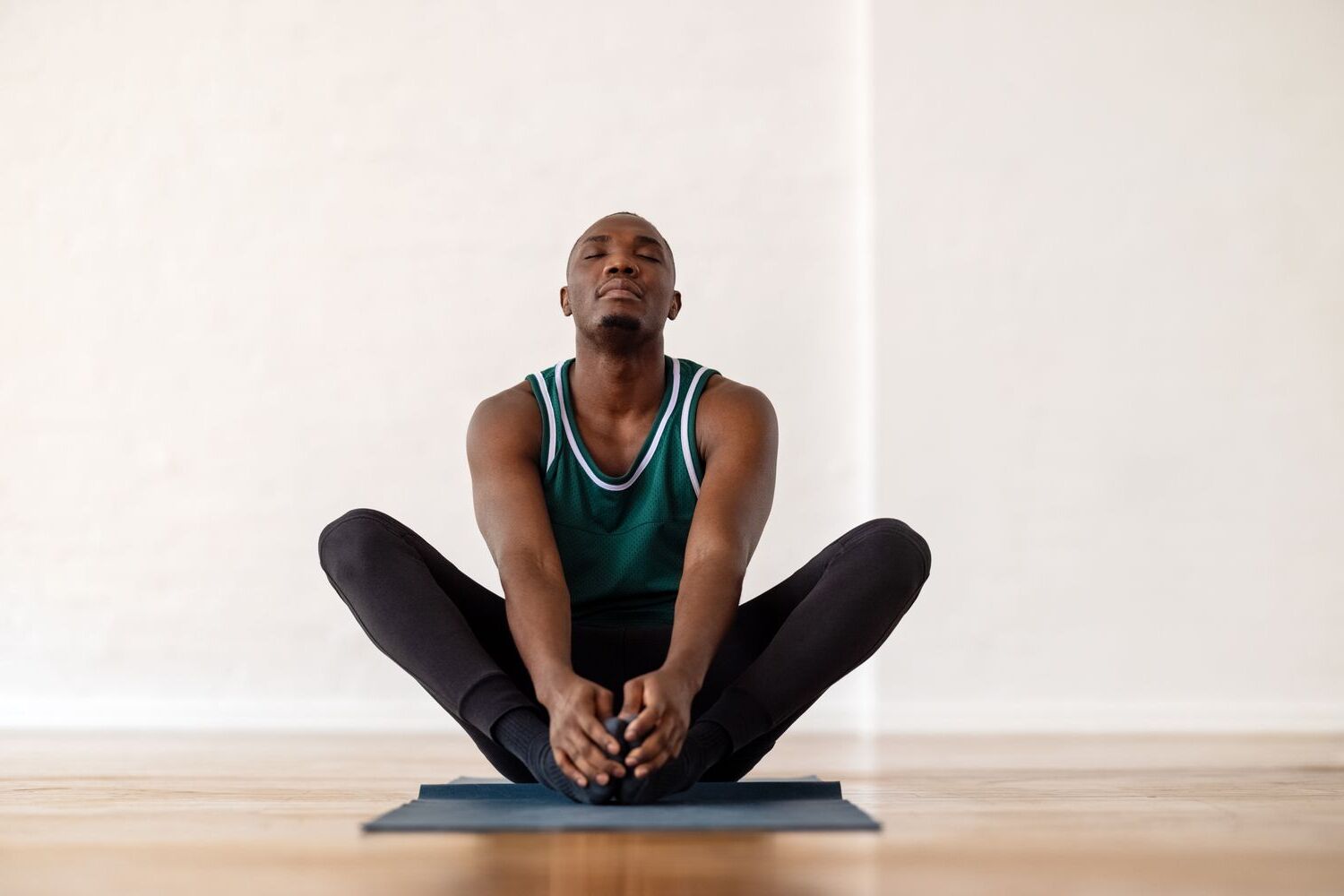
Mental preparation is the secret weapon of champions. Whether you're an athlete, a student, or a professional, having a strong mental game can make all the difference. But what exactly does it mean to be mentally prepared? Mental preparation involves techniques and strategies to get your mind ready for challenges, helping you stay focused, confident, and resilient. From visualization to positive self-talk, these methods can boost performance and reduce stress. Curious about how to sharpen your mental edge? Here are 28 facts that will help you understand and master the art of mental preparation. Get ready to unlock your full potential!
Key Takeaways:
- Mental preparation, like visualization and positive self-talk, boosts confidence and reduces anxiety in sports, academics, and everyday life. It's like a secret weapon for success!
- Athletes and students use mental preparation to improve focus, manage stress, and enhance performance. It's like a superpower that helps them excel in their endeavors.
Understanding Mental Preparation
Mental preparation is key to success in various aspects of life, from sports to academics. It involves techniques and strategies to enhance focus, reduce anxiety, and improve performance. Let's dive into some fascinating facts about mental preparation.
-
Visualization: Athletes often use visualization techniques to mentally rehearse their performance. This helps create a mental image of success, boosting confidence and reducing anxiety.
-
Positive Self-Talk: Encouraging oneself with positive affirmations can significantly impact performance. It helps in building self-belief and maintaining motivation.
-
Mindfulness Meditation: Practicing mindfulness can improve concentration and reduce stress. It involves staying present and fully engaging with the current moment.
-
Goal Setting: Setting clear, achievable goals provides direction and motivation. It helps in breaking down larger tasks into manageable steps.
-
Routine Development: Establishing a pre-performance routine can create a sense of familiarity and control. This reduces anxiety and enhances focus.
-
Breathing Techniques: Controlled breathing exercises can calm the mind and body. Techniques like diaphragmatic breathing help in managing stress and improving focus.
The Science Behind Mental Preparation
Understanding the science behind mental preparation can provide deeper insights into its effectiveness. Here are some scientific facts that highlight its importance.
-
Neuroplasticity: The brain's ability to reorganize itself by forming new neural connections is known as neuroplasticity. Mental preparation techniques can enhance this process, improving learning and performance.
-
Stress Hormones: Mental preparation can reduce the production of stress hormones like cortisol. Lower cortisol levels lead to better focus and performance.
-
Brain Waves: Techniques like meditation and visualization can alter brain wave patterns. Alpha waves, associated with relaxation and focus, are often increased through these practices.
-
Cognitive Load: Mental preparation helps in managing cognitive load, the amount of mental effort being used. Efficient mental strategies can reduce cognitive overload, leading to better performance.
-
Emotional Regulation: Mental preparation techniques aid in regulating emotions. This helps in maintaining composure and making rational decisions under pressure.
Mental Preparation in Sports
Athletes often rely on mental preparation to enhance their performance. Here are some interesting facts about how mental preparation is used in sports.
-
Pre-Game Rituals: Many athletes have specific pre-game rituals that help them get into the right mindset. These rituals can include listening to music, visualization, or specific warm-up routines.
-
Mental Toughness: Developing mental toughness is crucial for athletes. It involves resilience, focus, and the ability to perform under pressure.
-
Focus Training: Athletes often engage in focus training exercises to improve their concentration. This can include tasks that require sustained attention and mental endurance.
-
Performance Anxiety: Mental preparation techniques can help in managing performance anxiety. This includes strategies like deep breathing, visualization, and positive self-talk.
-
Team Cohesion: Mental preparation is not just for individual athletes. Teams also engage in mental strategies to improve cohesion and communication.
Mental Preparation in Academics
Students can benefit greatly from mental preparation techniques. Here are some facts about how mental preparation can enhance academic performance.
-
Study Techniques: Effective study techniques, like spaced repetition and active recall, are forms of mental preparation. They help in improving memory retention and understanding.
-
Test Anxiety: Mental preparation can help in managing test anxiety. Techniques like deep breathing, visualization, and positive self-talk can reduce anxiety and improve performance.
-
Time Management: Setting clear goals and developing a study routine are essential for effective time management. This helps in reducing stress and improving productivity.
-
Mindfulness in Learning: Practicing mindfulness can enhance focus and concentration during study sessions. It involves staying present and fully engaging with the material.
-
Motivation: Mental preparation techniques can help in maintaining motivation. This includes setting clear goals, positive self-talk, and visualization.
Mental Preparation for Everyday Life
Mental preparation is not just for athletes and students. It can also be beneficial in everyday life. Here are some facts about how mental preparation can improve daily living.
-
Stress Management: Techniques like deep breathing, mindfulness, and positive self-talk can help in managing everyday stress.
-
Decision Making: Mental preparation can improve decision-making skills. Techniques like visualization and goal setting can provide clarity and direction.
-
Productivity: Developing a routine and setting clear goals can enhance productivity. This helps in managing time effectively and reducing stress.
-
Emotional Well-being: Mental preparation techniques can improve emotional well-being. This includes practices like mindfulness, positive self-talk, and visualization.
-
Resilience: Developing mental resilience is crucial for handling life's challenges. Techniques like positive self-talk, goal setting, and mindfulness can enhance resilience.
-
Sleep Quality: Mental preparation can improve sleep quality. Techniques like deep breathing, visualization, and mindfulness can promote relaxation and better sleep.
-
Relationships: Mental preparation can improve relationships. Techniques like mindfulness and positive self-talk can enhance communication and emotional regulation.
The Power of Mental Preparation
Mental preparation is a game-changer. It boosts confidence, reduces stress, and enhances performance. Athletes, students, and professionals all benefit from it. Visualization, positive self-talk, and goal-setting are key techniques. These methods help focus the mind and build resilience. Consistent practice makes these techniques more effective.
Remember, mental preparation isn't just for big events. It’s useful in daily life too. Facing a tough meeting or a challenging exam? Use these strategies to stay calm and focused. Over time, you'll notice a significant improvement in your ability to handle pressure.
Incorporate mental preparation into your routine. Start small, be patient, and stay committed. The benefits are worth the effort. Your mind is a powerful tool. Use it wisely, and you'll achieve more than you ever thought possible.
Frequently Asked Questions
Was this page helpful?
Our commitment to delivering trustworthy and engaging content is at the heart of what we do. Each fact on our site is contributed by real users like you, bringing a wealth of diverse insights and information. To ensure the highest standards of accuracy and reliability, our dedicated editors meticulously review each submission. This process guarantees that the facts we share are not only fascinating but also credible. Trust in our commitment to quality and authenticity as you explore and learn with us.


